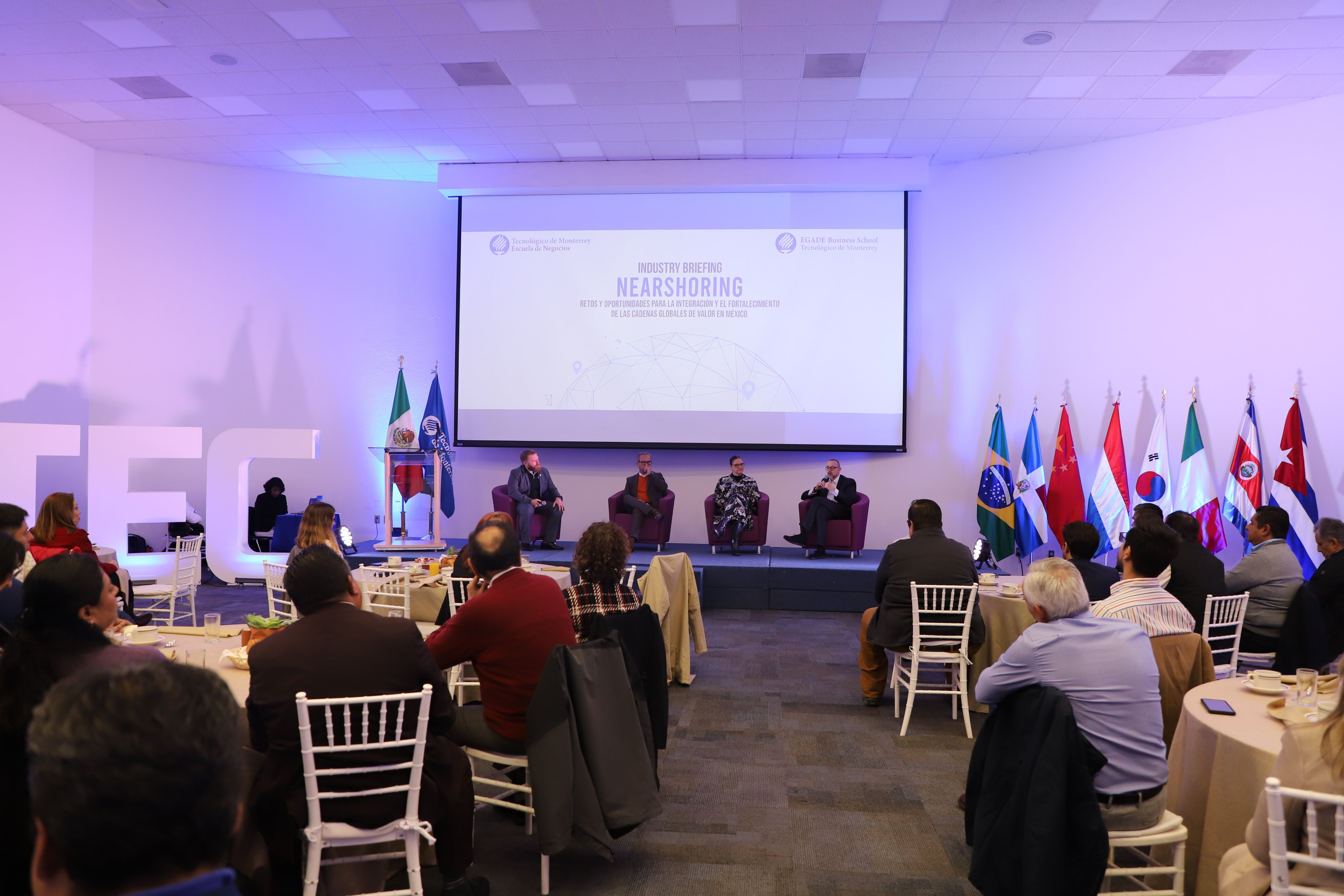The Business School and EGADE Business School presented the industry briefing "Nearshoring. Challenges and opportunities for the integration and strengthening of global value chains in Mexico", on December 7 at the Querétaro campus of the Tecnológico de Monterrey.
Before business leaders and managers, the dean of EGADE Business School, Horacio Arredondo, pointed out the need to guarantee the sustainability of this development model.
“The wave of nearshoring must be accompanied by better jobs and decent wages to generate inclusive growth,” he said.
The presentation of the report, by Osmar Zavaleta, associate dean of Research at the Business School and EGADE Business School, offered a look into the future, analyzing foreign direct investment (FDI) and the phenomenon of nearshoring from various perspectives: geopolitics , economy, logistics, human capital, energy, among others.
The industries that most attract FDI to Mexico, Zavaleta highlighted, are metalworking, machinery, medical devices, household goods, computing and automotive.
The welcome to the event was offered by Pascual Alcocer, vice president of the South Central Region of Tecnológico de Monterrey, and Marco Antonio del Prete, head of the Secretariat of Sustainable Development (SEDESU) of the State of Querétaro.
Alcocer commented that, consistent with the priority of innovation and entrepreneurship at the Tec, the trends that will determine future scenarios and provide information on the importance of relocation in the Mexican economy are presented.
"There is talk that from nearshoring the GDP can increase by up to 3% in the next five years. Likewise, the strong integration of the supply chains linked to the United States will allow Querétaro to benefit from this trend of relocation of the supply,” he noted.

For his part, Secretary Del Prete reported that issues such as the container crisis and the stoppage of supply chains due to the pandemic generated a rethinking of supply schemes, which forces large companies to bring their productions closer to our country. country to take advantage of the logistical facilities and advantages of the T-MEC.
“In the specific case of Querétaro, the competitiveness it has is being taken advantage of; today the state is the second most competitive in the country, this is due to different public policies promoted in the state for many years, which affect nearshoring. such as legal certainty and trained personnel,” he noted.
Mercedes Poiré, director of EGADE Business School, Santa Fe headquarters, served as master of ceremonies for the event that also included a discussion panel moderated by Romain Pouzou, professor at the Tec Business School, with the participation of Luz Consuelo Garza, CFO from Kellogg Mexico; Genaro Montes, Undersecretary of Economic Development of the State of Querétaro, and Ricardo Buitrago, professor at EGADE Business School.
The event concluded with a message from the Dean of EGADE Business School.